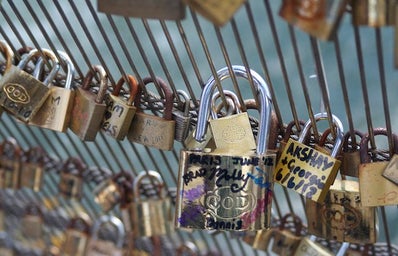London, 1901, in the wake of the death of Queen Victoria, the city heaves with the uncanny and the eerie, giving rise to a generation of spiritual mediums and guides. Samuel Moncrieff, recovering from a recent tragedy, meets Helena Walton-Cisneros, one of London’s most reputed mediums. Together, they are drawn into a twenty-year-old mystery of three sisters who vanished without a trace on the Norfolk Fens.
I didn’t know what this book was about when I started to read it. What I did know was that Marian Womack is a rising star in the contemporary gothic literature scene and that this book is based on the famed short story “The Golden Key” by George MacDonald. Otherwise, I delved into it without the slightest clue. Of course, I had read the synopsis, but I didn’t fully process it until I finally finished this lovely novel.
Upon starting the first chapter, I was puzzled. It’s as if I had arrived in 20th century London myself; I could feel the cobblestones beneath me and then slowly sink into marshy land to be swept away by an ever-present green light. I’d never read contemporary gothic fiction before, so I felt displaced, but I was marveled. Womack has a way with words. She manipulates them in such a way that you feel transposed into the setting. You are given three unique perspectives that help you unravel the mystery of the Norfolk Fens as the characters themselves do.
I’d always thought that to write a successful detective novel, you would have to feed the reader information that not even the characters know. You could anticipate the character to find that information. This book’s pleasure comes from you trying to figure out the puzzle with vague strands of information that aren’t all that accessible. Even when I thought I’d figured out what’s going on with Sam and the Maud girls, did I really? I was desperate for the book to give me answers because I didn’t trust the answers I’d given myself. The ending was oh so satisfying, but at the same time, not at all. Here’s to hoping that Womack gives us more of Helena Walton-Cisneros.
I enjoyed that this novel is difficult to categorize. Of course, it fits into the greyness of the gothic novel, but it has deep underlying fantasy tones—without feeling completely unreal—and definitely mystery as well. Even so, there were times when the chills ran down my spine, and I would have to snap the book shut. I’d suddenly feel this sense of dread, of creepiness, and being home alone while I read it certainly didn’t help.
Womac’s tale also felt like home, in a sense. The story is reminiscent of Latinx magical realism. Magic is everpresent, and even if the characters want to ignore what’s going on, it will continue to happen. Some of the characters address the unusual side of the sup[ernatural events that happen while others embrace the strangeness of it all. Due to these gray areas, the book lands right in the place between where the magical realism ends and where fantasy begins. The use of typical traits from each of the genres was masterful and delighted me.
Though the characters are not necessarily the focus of the novel, they have enough development that you feel the shift in personality and a shift in the narrative. The ambiance and plot were expertly crafted. I very much enjoyed the subtle references throughout the book to critical social issues: gender equity, the mistreatment of the Roma people, the consistent structural oppression of women, spiritualism, and many more themes that are softly melded into the book. Lulled with the mesmerizing use of language, your subconscious sparks with every cultural reference she incorporated. The way Womack chooses to do it, as in all ways, is beautiful.
I’m pleased I read this book. It’s one I wouldn’t generally reach for, but I loved it from beginning to end. The symbology of self, of otherness, and magic is both philosophical and reflective. I recommend The Golden Key with all my heart, and I’m looking forward to reading more from Marian Womack.
Make sure you purchase your copy (before it’s all sold out!) through Titan Books, Amazon, Book Depository, and Barnes and Noble. It just came out yesterday and it’s in high demand!


